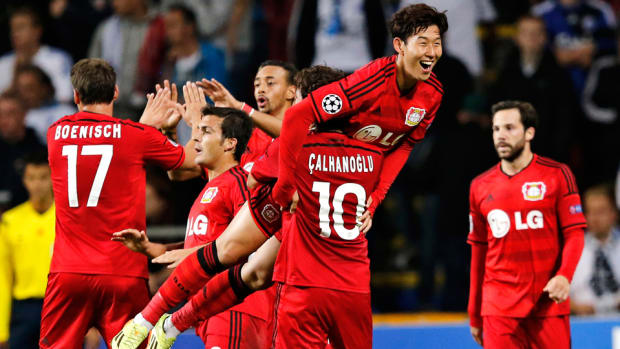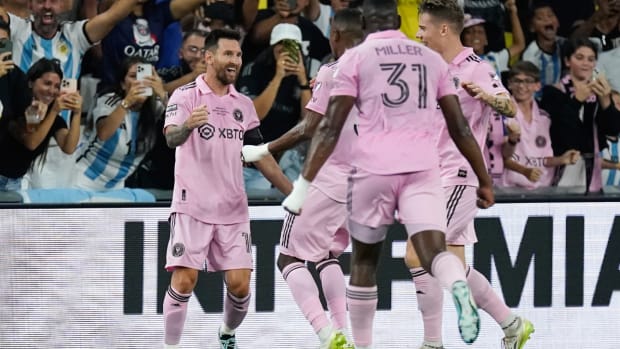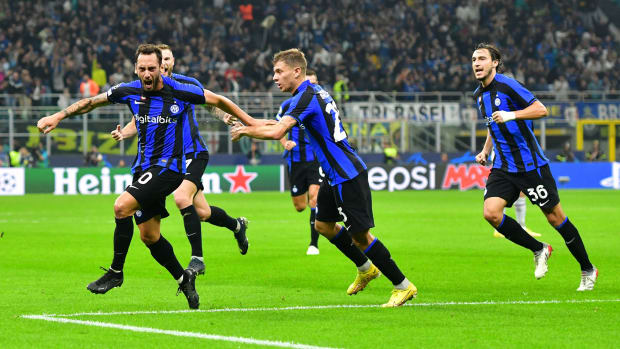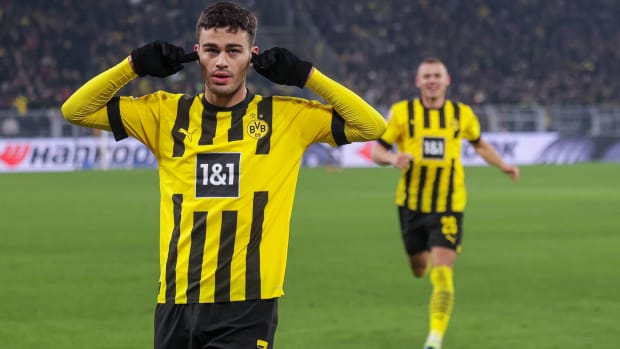Steven Gerrard, Aston Villa Need Each Other to Prove a Point
In September 2009, Liverpool lost 2–0 at Fiorentina in the Champions League. In the tunnel before kickoff, Christian Purslow, the club’s chief executive who grew up near Aylesbury and was educated at Cambridge and Harvard, went up to captain Steven Gerrard, gave him a friendly slap on the backside and, adopting a faux-Scouse accent, encouraged him with the words, “Go ‘ed, Stevie, la.”
It was a moment most who witnessed it seem to have regarded with a mixture of embarrassment and hilarity, but it was also telling of the relationship between Purslow, a boyhood Liverpool fan, and Gerrard, a player he idolized. And now Purslow has appointed Gerrard manager of Aston Villa, his hiring confirmed Thursday. Whether hero worship is a healthy basis for a relationship between a director and a manager is debatable, but Purslow has a ruthless streak, sacking Rafa Benítez during his stint at Liverpool.
Liverpool, inevitably, comes up whenever Gerrard is mentioned—all the more so given Villa faces Liverpool on Dec. 11. He has made no secret of the fact that his dream is to return to Anfield someday, which is reasonable enough, although Villa fans have a right to hope that he sees the club as more than a stepping stone. Villa has, after all, spent a net $325 million on transfers over the past four seasons, even with the sale of Jack Grealish to Manchester City for $139 million. Villa’s target for this season was to qualify for European football, and the fact that it lies fifth from the bottom of the Premier League table, just two points above the relegation zone, is the main reason Dean Smith was sacked, although disappointing form at the tail end of last season was also a factor.
That Gerrard has left Rangers, where he won the title last season by ending Celtic’s hopes of landing a record run of 10 in a row, has surprised many. Despite slipping from the heights of last season's Invincible run, Rangers are four points clear of a Celtic in transition, and a second successive title was a strong probability. European form has been less impressive, but with a home game against Sparta Prague to come in two weeks, Rangers had a decent chance of making it to the last 32 of the Europa League.
But the truth is that whatever a manager achieves with Rangers or Celtic will always come with a question mark. They are far stronger than other clubs in the Scottish league, and the demands on a manager are correspondingly different. Just as Brendan Rodgers abandoned Celtic midseason to take the Leicester job, so Gerrard appears to have been keen to return to Premier League football, particularly as the transfer spending of his first three years in the job dried up.
He joins a Villa side that's in awful form, having lost five games in succession, and one with great expectations. The departure of Grealish is only part of the issue. In contrast to the way Tottenham held on to Harry Kane, Villa acted promptly, accepting that Grealish was leaving and buying Leon Bailey, Danny Ings and Emi Buendía with the proceeds. That decisiveness, and Purslow’s accompanying explanatory video, was widely praised at the time, but, not helped by injuries, it has been hard to fit all three in the side at the same time. Buendía and Bailey both prefer to play from the right, while Ings was effectively competing for a place with Ollie Watkins.
Smith could not find a way to make that work. Villa lost all four of the games in which he used two central midfielders, while attempts to form a strike duo from Ings and Watkins have not really worked. Gerrard may end up playing a narrow 4-3-3 similar to what he has used in Scotland, with the width coming from overlapping fullbacks. The problem is that’s far easier to pull off if you’re averaging 68% possession, as Gerrard’s side did domestically. He did adapt in Europe, and Rangers had just 50% possession in reaching the last 16 of last season’s Europa League, but the Premier League is a different test—and a campaign that ends in defeat to Slavia Prague can’t be an entirely convincing application for a Premier League job.
Gerrard’s start in management has been promising and, however frustrated Rangers may be at his departure, Villa represents a step up. But the task ahead of him is tough. The scrap at the bottom of the table has the potential to be incredibly bloody, as the Premier League’s middle class is stronger than it has been for a while and at least one decent side is likely to be relegated. Villa, meanwhile, expects far more than just survival.
More Soccer Coverage From Jonathan Wilson:






